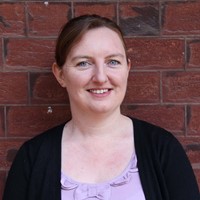The 300 cardinals, bishops, priests, religious and lay experts, and young people welcomed the draft of the final document, which was presented to the Synod on 23 October.
The drafting committee will finalise the definitive version of the document for presentation to the entire Synodal assembly on Saturday 27 October, and to the media later that evening.
“It has been a long, gruelling process but, with good will all round, the letter is drafted.” Sydney Archbishop Anthony Fisher told Catholic Weekly.
What issues are covered in the final document?
Xavier Rynne II writing for the Catholic Weekly, says “There is an effective, even touching, use of the Emmaus story in Luke 24 as the biblical “frame” for the document. There is a strong section condemning sexual abuse by anyone; a frank acknowledgment of the irresponsibility of bishops in failing to discipline abusive priests; and a recognition of how great an obstacle clerical sexual abuse is to evangelization. The draft final report links baptism to mission in a way that reflects Pope Francis’s challenge, often forgotten amidst recent battles, that Catholicism should become a Church of radically converted disciples, permanently in mission.”
Another topic that been raised is the role of women in the Church. Cardinal Reinhard Marx of Germany told Melbourne Catholic that without change and development one can never make any progress. The question of women’s roles in the Church is important for the whole Church. He said that women need to be given real participation in the Church’s decision making processes. In some place this is already happening. The Cardinal said that 30 years ago he too may have been opposed to this but, he said, ‘thank God I didn’t get stuck there!’
Filipino Cardinal Luis Antonio Tagle of Manila told La Croix “the Synod paid particular attention to listening to female voices.
“From my point of view, the testimony of women, whether lay or religious, young people or experts, helped provide a broader horizon, which was necessary,” he added.
Homosexuality and the role of the Church’s moral teaching was also addressed in the final document. “The issue was raised several times,” said Cardinal Tagle.
“The posture of a welcoming Church that looks at the humanity of each person was always present, not just as a discussion issue but in the whole atmosphere (of the Synod),” he told La Croix.
What happens next?
Once the document is finalised, it will later be made available world-wide, and individual Catholic parishes and communities will be encouraged to read it and look at how it will impact their community.
“What happens after the closing of the Synod, in local churches, parishes, schools and families, that is the ‘real’ Synod,” Cardinal Tagle told La Croix.

